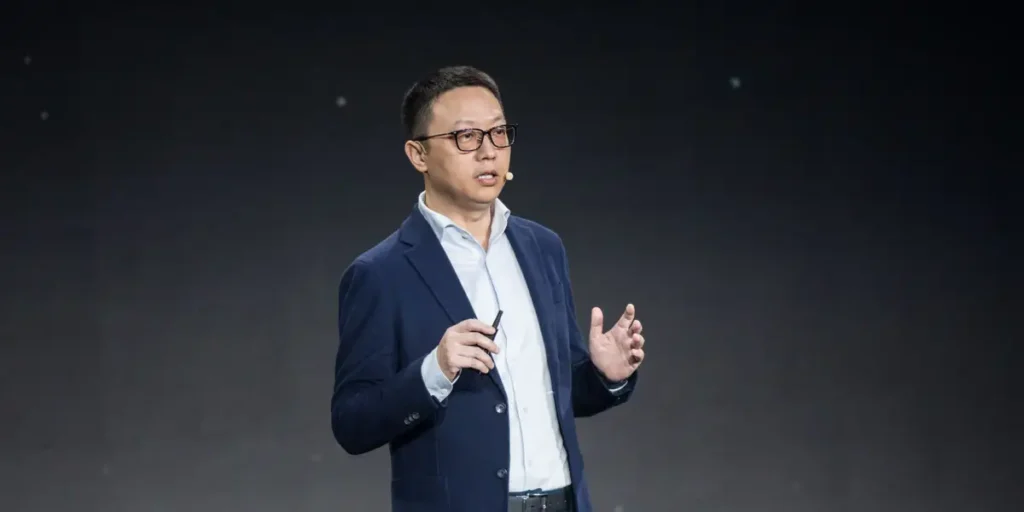Alibaba’s CEO brushed off talk of an AI bubble and said he’s doubling down on spending.
The CEO of the Chinese tech giant, Eddie Wu, said on Alibaba’s second-quarter earnings call on Tuesday that the company “doesn’t really see much of an issue in terms of a so-called AI bubble.”
“We’re not even able to keep pace with the growth in customer demand,” Wu said, adding that the pace at which Alibaba can deploy new servers is insufficient.
“In the next three years to come, AI resources will continue to be under supply,” he said.
Wu said that the surge in demand isn’t coming from hype but from real-world AI adoption across the economy, such as across product development, manufacturing processes, and supporting companies.
He said that Alibaba’s Qwen app, launched just last week, surpassed 10 million downloads in its first week.
On Tuesday, Alibaba Group posted 247.8 billion yuan, or $34.8 billion, in revenue for the quarter ending September 30, a 5% increase from last year.
Profits were hit by heavy spending on AI and commerce. Net income fell 53% from a year earlier to 20.6 billion yuan due to a “decrease in income from operations.” Sales and marketing expenses surged, more than doubling from a year ago.
The cloud division, which includes Alibaba’s Qwen platform, led the company’s growth. The cloud business grew 34% to 39.8 billion yuan, driven by “public cloud revenue growth, including the increasing adoption of AI-related products.”
Wu said on the call that the company is planning to invest “aggressively” in AI infrastructure to meet demand.
Alibaba announced in February that it would invest 380 billion yuan in AI infrastructure over the next three years.
“In big picture terms, I would say that the 380 billion figure we had mentioned previously might be on the small side,” Wu said on Tuesday.
The company’s stock is up more than 86% this year.
AI bubble chatter
Wu’s remarks contrast with those of Alibaba’s chairman, Joe Tsai.
Tsai said at the HSBC Global Investment Summit in March that he’s starting to “see the beginning of some kind of bubble,” pointing to the rush to build data centers.
Big Tech firms, including Microsoft, Amazon, Google, and Meta, are collectively expected to spend $320 billion on capital expenditures this year as they race to expand their AI infrastructure.
The AI bubble debate has split tech leaders across the industry.
Some executives have rejected the idea that the AI boom is overheating. Last week, Nvidia CEO Jensen Huang dismissed fears of an AI bubble on his company’s latest earnings call.
“There’s been a lot of talk about an AI bubble,” Huang said. “From our vantage point, we see something very different.”
Others have been more cautious. OpenAI CEO Sam Altman said in August that investor enthusiasm has run ahead of reality.
“Are we in a phase where investors as a whole are overexcited about AI? My opinion is yes. Is AI the most important thing to happen in a very long time? My opinion is also yes,” he said.


